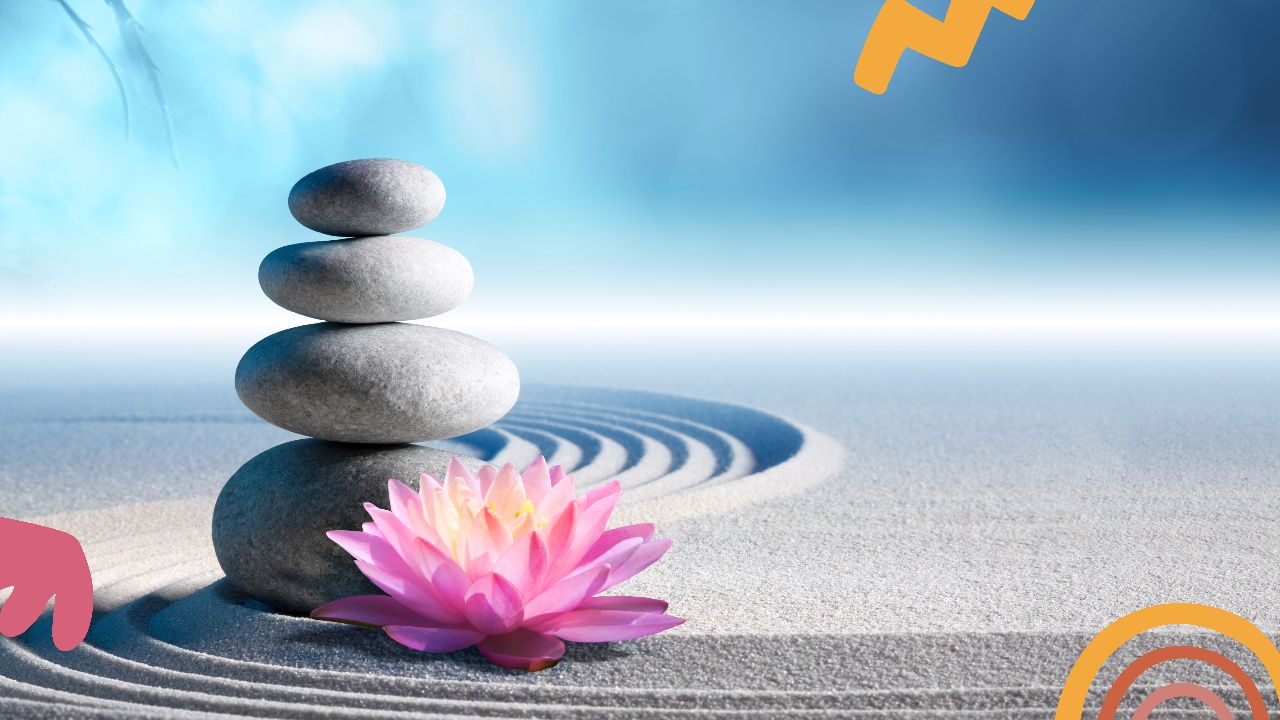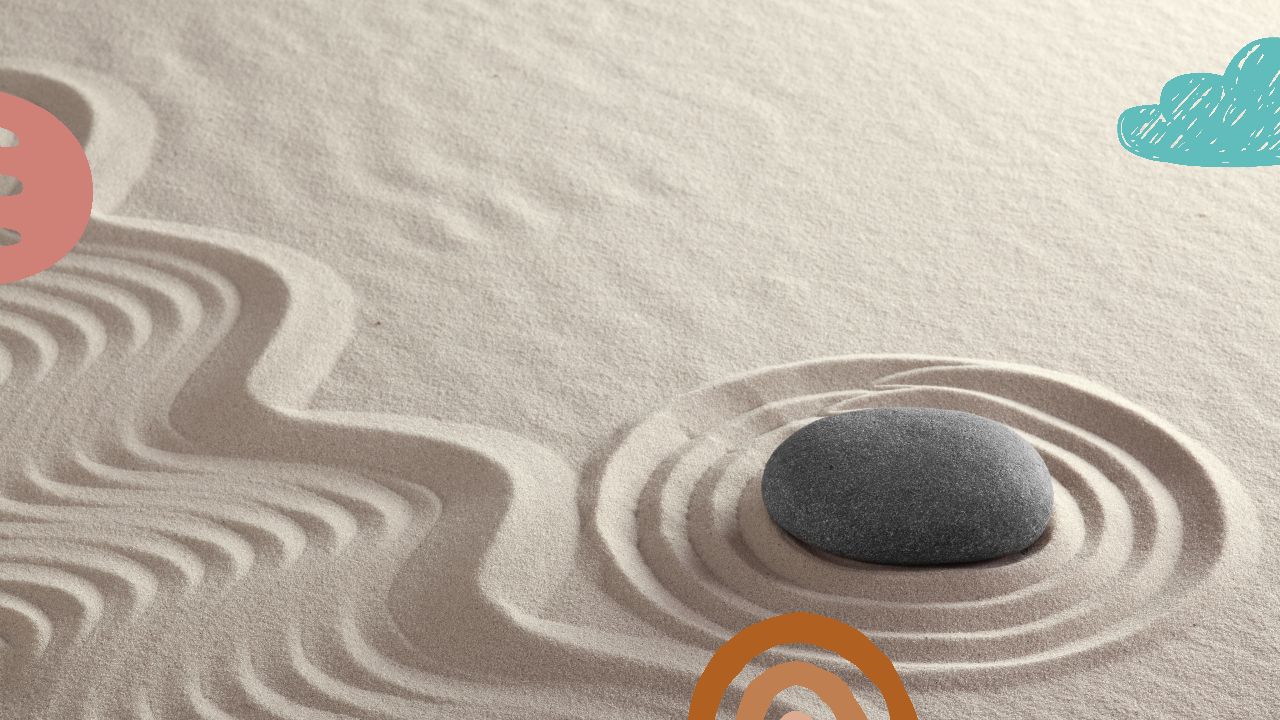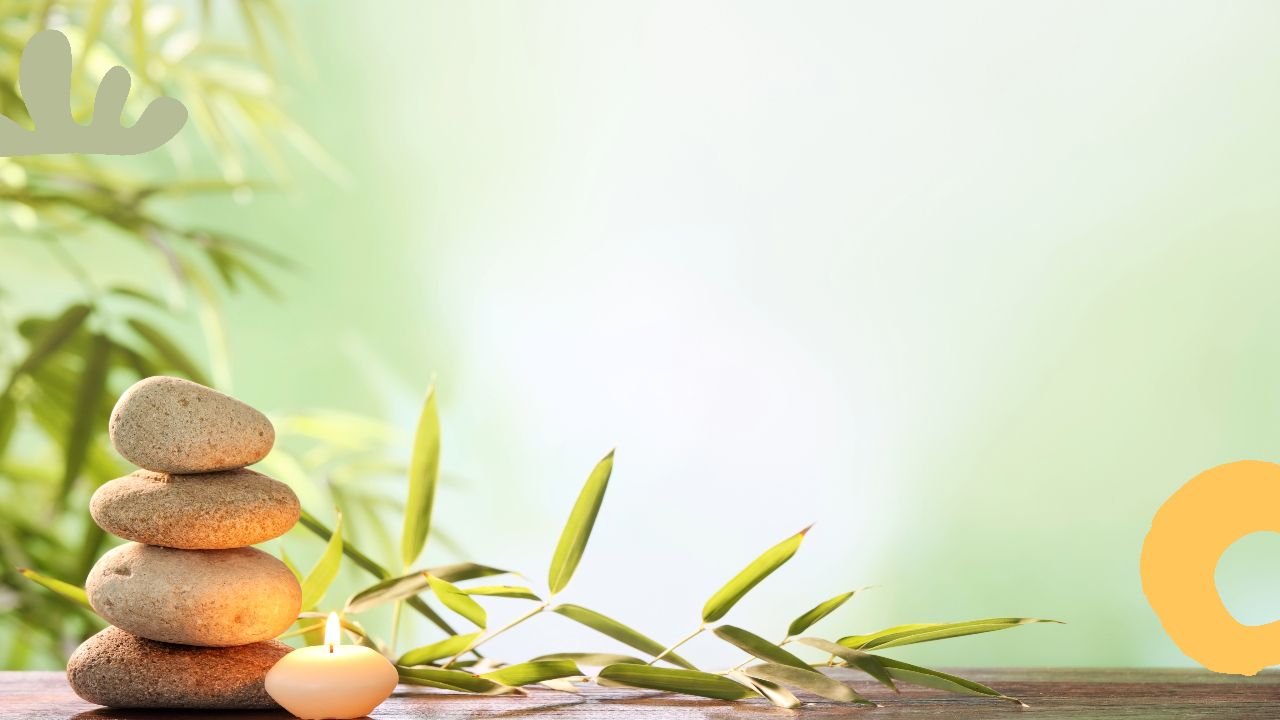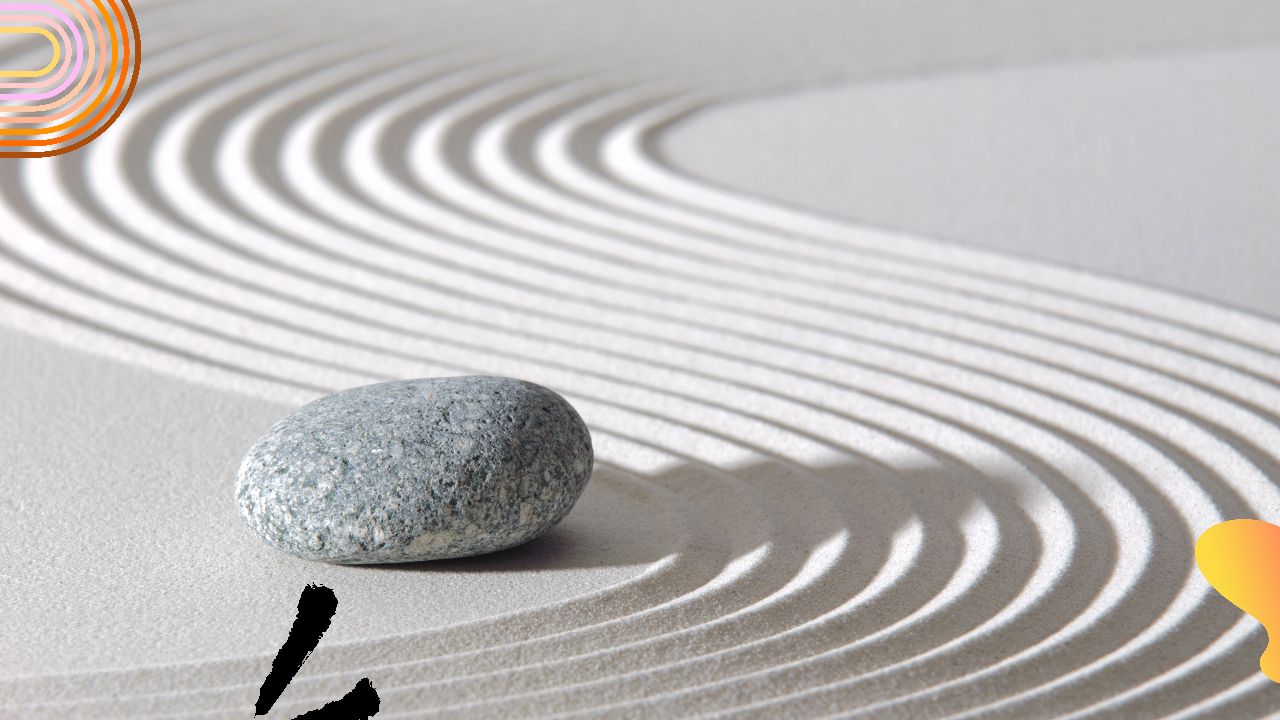
Have you ever felt overwhelmed, disoriented, or "ungrounded"? This is where grounding techniques, especially those rooted in nature, come to the rescue. Grounding stones, with their tangible presence and unique energetic properties, can serve as powerful tools for both emotional and physical grounding.
So, what are grounding stones and their purpose? Grounding stones, often sourced from Earth's rich terrains, are used to anchor ourselves during turbulent times. They not only tether us to the present moment but also act as conduits to the Earth's stabilizing energies, thereby fostering overall well-being and balance.
Need a structured approach? Our 10-step guide to finding life balance offers actionable insights.
The role of grounding techniques is pivotal in emotional self-care. Just as these stones physically connect us to the Earth, grounding methods weave a fabric of mindfulness, helping to combat the inner critic and navigate the vast emotional landscapes we often traverse. It's about centering ourselves, breathing mindfully, and finding harmony amidst chaos.
Embracing these techniques, whether through the gentle touch of a stone or a deliberate cognitive mindset shift, paves the way to a rejuvenated spirit and a life aligned with intention.
Join our Newsletter
Transform your career with our personal growth insights. Get one valuable tip right in your inbox every Saturday morning.
Grounding Techniques & Exercises
In a world that constantly pulls us in myriad directions, staying centered is a skill, almost an art form. Grounding techniques offer us the compass we need, guiding us back to a state of equilibrium and calm.
With a related topic learn more and expand your knowledge with Understanding how to calm anxiety at work.
Overview of Grounding Methods
Grounding methods are strategies and practices, often rooted in age-old wisdom, that help individuals tether themselves to the present moment. Accepting feedback are learning through them is another way. Whether you're someone grappling with emotional stress or simply looking to stay anchored amidst the day-to-day whirlwind, grounding can be the key to emotional well-being. A detailed guide on various techniques can be explored on our dedicated blog post: How to Ground Yourself.
Mental Techniques and Cognitive Mindset Shifts
- Mindfulness: Often misunderstood as just a meditation technique, mindfulness is about being present. It's about fully engaging with the here and now, without getting lost in past regrets or future anxieties.
- Combatting the Inner Critic: We all have that voice inside that sometimes leans towards negative self-talk. Grounding yourself in self-compassion can quiet this critic, fostering a more supportive inner dialogue.
- Shifting Perspective: When faced with a challenging situation, a simple yet effective grounding technique is to get a different perspective. Instead of catastrophizing, take small steps to shift your mindset and gain new insights.
A detailed guide on various techniques can be explored on our dedicated blog post: How to Ground Yourself.

Physical Techniques for Sensory Grounding
- 5-4-3-2-1 Technique: This involves grounding yourself using all five senses. Identify five things you can see, four you can touch, three you can hear, two you can smell, and one you can taste. It's a rapid and effective way to return to the present.
- Grounding Stones: These are not just metaphorical. Holding a grounding stone, feeling its texture, temperature, and energy, can be an immediate source of comfort. It's tactile grounding at its finest.
- Body Grounding: Physical exercises, whether it's a gentle yoga stretch or simply pressing your feet into the ground, can be incredibly grounding. It reminds us of our physical presence in this vast universe.
- Mindful Breathing: The breath is a natural anchor. Engaging in conscious breathing or breath awareness, even for just a minute, can drastically shift our state from chaos to calm.
Incorporating these techniques, whether mental or physical, into daily routines can create a reservoir of calm and balance. This reservoir then becomes our sanctuary, a place to retreat to when the outside world becomes too overwhelming.
Mental & Emotional Wellness
The journey to a fulfilled and harmonious life is incomplete without giving due attention to our mental and emotional well-being. While the world places emphasis on physical wellness, our internal landscapes—comprising thoughts, emotions, and perceptions—play a pivotal role in defining our overall health.
Observe habits that will help enhance your mental wellness with 20 daily habits to track for improved mental wellness.
Mindful Breathing and Breath Awareness
One of the most immediate gateways to mental clarity is our breath. It's fascinating how this involuntary action, which keeps us alive, can also anchor us in the present:
- Deep Breaths: A simple yet profound technique is to take deep, measured breaths. This calms the nervous system, reducing feelings of anxiety.
- Breath Awareness: This involves observing the breath without changing it. Notice the rhythm, the temperature of the air entering and leaving your nostrils, and the rise and fall of your chest.
- Counted Breathing: Inhale for a count of four, hold for four, and exhale for four. This equal-part breathing can center your mind, especially in stressful situations.

Catastrophizing and How to Avoid Overthinking
It's human nature to sometimes imagine the worst-case scenarios, a term often referred to as "catastrophizing". While it might have served our ancestors in dangerous situations, today, it often leads to undue stress and anxiety.
- Stay in the Present: Recognize when you're venturing too far into the future with negative predictions. Ground yourself back in the present moment.
- Reality-Check: Ask yourself: "Is this thought based on fact or fear?"
- Seek External Perspectives: Sometimes, a fresh pair of eyes can offer a different perspective.
Make Friends with Your Inner Critic and Self-Judgment
While the inner critic can serve as a drive for growth, it becomes detrimental when its voice is too loud and persistent:
- Dialogue with the Critic: Engage in a conversation. Ask it: "Why are you saying this?" Often, you'll find it's just trying to protect you in its skewed way.
- Shift the Narrative: Instead of viewing the inner critic as an enemy, view it as a misguided friend. Cultivate self-compassion, embracing imperfections.
- Reframe Negative Self-Talk: For every negative statement, counteract with a positive affirmation. Over time, this practice can reshape your internal dialogue.
Caring for our mental and emotional selves isn't a luxury—it's a necessity. These techniques, when integrated into daily life, can be the foundation upon which we build our strongest, most authentic selves.
Physical Well-being & Alignment
Physical wellness isn't just about the absence of disease or being in peak physical shape. It's about the integration of physical health with our emotional, mental, and spiritual well-being, forming a balanced harmony that enhances our overall health and quality of life.
Join our Newsletter
Transform your career with our personal growth insights. Get one valuable tip right in your inbox every Saturday morning.
Prioritize Physical Wellness for Overall Health
Our body is the vessel that carries us through life. When we prioritize our physical well-being, we're not just investing in our bodies, but in our emotional well-being and mental clarity too:
- Routine Exercise: Even a simple walk outdoors can rejuvenate the mind, connecting us with nature.
- Balanced Diet: Fueling the body with the right nutrients ensures it has the energy to tackle daily tasks, enhancing well-being.
- Rest and Sleep: It's essential for recovery, mental clarity, and emotional balance.
Emotional Landscapes and Emotional Experiences in Grounding
Our emotional landscapes—comprising myriad emotional states and experiences—play a pivotal role in our grounding. By recognizing and navigating our emotional experiences, we better ground ourselves, finding balance in a turbulent world:
- Emotional Recognition: Identifying what we're feeling at any given moment is the first step to understanding ourselves.
- Mindful Observation: Watch your emotions without judgment. See them as waves, coming and going, without getting attached.
Rooting to Purpose with Intention
At the core of our being lies our purpose—the driving force behind our actions and choices. To truly ground ourselves, we must align with our values and live with intention:
- Seek Your Calling: Sometimes, we're called to something greater than ourselves. Discovering and understanding this can be a transformative experience. Learn more about finding and embracing your calling in our detailed guide on What is a Calling?
- Live with Intention: Every day, make choices that resonate with your core values, reinforcing your connection with your deeper purpose.
- Reflect Regularly: Take moments to contemplate your journey, ensuring you're on a path that feels authentic and fulfilling.
Physical alignment and well-being go beyond the superficial. They encompass our relationship with our emotional landscapes, our connection to a higher purpose, and the daily choices we make to nurture our holistic health.

Strategies to Ground Yourself
Life can sometimes feel like a whirlwind of emotions, responsibilities, and unexpected events. Amidst the chaos, grounding ourselves becomes imperative for maintaining our emotional, mental, and physical health. Here are some practical strategies to help you find balance and center yourself:
Get Out in Nature and Connect with the Outdoors
Nature has a profound grounding effect on the human soul. The fresh air, the rhythmic sounds of nature, and the sheer beauty of the outdoors can instantly recalibrate our senses and recenter our minds:
- Mindful Walks: Go for a walk in a local park or forest. Focus on the sensation of the ground beneath your feet, the sounds around you, and the freshness of the air.
- Gardening: Engaging with the soil, planting, and tending to a garden can be therapeutic and grounding.
- Outdoor Meditation: Find a quiet spot in nature and meditate, allowing the natural surroundings to amplify your experience.
Identify Your Circle of Control and Focus on What Matters
We often stress about things outside our control, leading to emotional strain and mental fatigue. By recognizing our circle of control, we can concentrate our energy more productively:
- List Making: Write down your current concerns. Next to each, note whether it's something within your control or outside of it. Focus your energy on those within your control.
- Acceptance: Understand that not everything is within your grasp. Accepting this fact can alleviate a lot of unnecessary stress.
- Active Engagement: For those elements within your control, take proactive steps. Even incremental progress can boost your sense of empowerment.

Get a Different Perspective Through Shifting Your Mindset
Sometimes, our thoughts and patterns trap us in a narrow view of our circumstances. A shift in perspective can open up new horizons and offer a refreshing take on our situations:
- Expand Your View: Consider the broader context of your current situation. What would it look like from an outsider's perspective? Or five years down the line?
- Challenge Limiting Beliefs: Question the validity of beliefs that may be holding you back. Are they truly representative of reality?
- Seek Inspiration: Read, listen, or watch content that offers a different viewpoint or encourages big-picture thinking. Our article on Big Picture Thinking dives deep into strategies and benefits of adopting a holistic perspective.
Incorporating these strategies into your daily life can make a world of difference. They can transform overwhelming moments into opportunities for growth, reflection, and deeper connection with oneself.
Building a Comprehensive Grounding Practice
In a world where emotional stress and distractions are rampant, grounding becomes an essential practice for achieving psychological well-being and emotional health. Every individual's journey with grounding is unique, but the benefits are universal: clarity, tranquility, and a profound connection with oneself.
Start with taking small steps. It's tempting to make significant changes all at once, but grounding is most effective when approached with patience. Embrace incremental progress, and celebrate the small victories along the way. Whether it's dedicating five minutes a day for mindful breathing or spending a weekend in nature, these seemingly tiny actions can accumulate to create a transformative impact.
A balanced approach is key. Physical grounding and mental health are two sides of the same coin, both supporting and amplifying the benefits of the other. Linking them ensures a holistic approach to grounding, addressing both the body and the mind. Our comprehensive business coaching program, while mainly targeted at professionals, dives deep into the connection between the physical, mental, and emotional dimensions, highlighting how these intersect in our daily routines and decision-making processes.
In conclusion, grounding is more than just a practice. It's a lifestyle choice, a commitment to one's well-being, and a journey of self-discovery. By focusing on both emotional self-care and physical wellness, you carve out a path of balance, peace, and holistic health.
Read more about: Well-being, Life Coaching
About Remy Meraz
Remy Meraz, co-founder, and CEO of Zella Life, is a visionary leader who leveraged corporate glass ceiling challenges as a woman of color to drive systemic change.
While leading and cultivating high-performance teams from VC-backed startups to Fortune 500, she consistently faced obstacles such as inadequate mentorship, lack of psychological safety, and non-personalized training. Taking matters into her own hands, she turned to executive coaching and NLP training. This life-changing growth experience led to breaking leadership barriers and a passion for cognitive psychology.
Motivated by her experiences, she co-founded Zella Life, an innovative AI-driven coaching platform bridging the talent development gap by enhancing soft skills and emotional intelligence (EQ) in the workplace.
Her vision with Zella Life is to transform professional development into an inclusive and impactful journey, focused on the distinct needs of both individuals and organizations. She aims to promote advancement and culture change by ensuring every professional's growth is acknowledged and supported.
Today, Remy is recognized as an influential innovator, trainer, mentor, and business leader. Under her leadership, Zella Life has delivered significant measurable outcomes for numerous well-known brands. This track record of positive outcomes garnered attention and funding from Google for Startups and Pledge LA, establishing Zella Life as a pivotal force in the learning and development arena tackling and resolving fundamental talent development issues for organizations of all sizes.